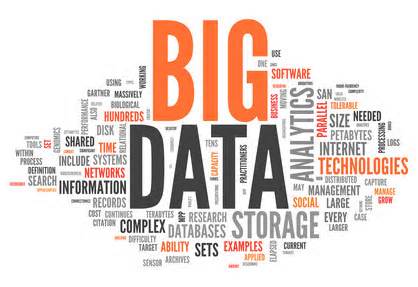Big data poses challenges for cognition

In the course of daily life, big data seems omnipresent. It has overturned many traditional modes of thinking, posing new challenges to communication styles and even to human cognition. Its emergence has led to a general push for greater accuracy and has acted as a catalyst in launching the transformation of a new era. Big data’s application in social life has even become an inevitable trend, and it has been increasingly used to analyze social good. The origin of applying big data for social change traces back to the term’s introduction by Michael Cox and David Ellsworth in 1997. Cox and Ellsworth, two NASA researchers, coined the term in describing their difficulties coping with the vast amounts of information and data generated by supercomputers in 1997.
In 2012, Viktor Mayer-Schönbergerand Kenneth Cukier’s bestseller A Revolution that will Transform How We Live, Work, and Think made big data a much more prominent topic in non-specialist circles. As Kenneth Cukier indicated in an interview with CNBC, “The evolution of big data is pushing the world into a new frontier. We are moving into an age where statistics, analytics, algorithms and quantification are taking center stage”. Not only will big data contribute to improving economic efficiency, but also it is a central force accelerating the process of health care and education reform and instigating social change. For humans, the essential question is how to harness the potential of big data and utilize it wisely.
Within academia, big data’s most significant impact is its influence in providing new, alternative thinking patterns and research methods. Melissa M. Terras, director of the Centre of Digital Humanities at University College London, said that big data can help scholars in the social sciences and humanities tackle unresolved issues. She pointed out that scholars can use big data to analyze changes in different languages by looking at large amounts of textual information.
This past May, in an article for The Guardian entitled “How Can Big Data be Used for Social Good?” Seeta Peña Gangadharan argued that social entrepreneurs should grasp the opportunity big data provides to benefit the society. However, Gangadharan cautioned that big data can invade humans’ privacy. He advised that much more objective criteria for collecting data and analyzing social change need to be set up under strict supervision. This way, we might encourage innovation and embrace the openness of our society at the same time, he iterated.
The Chinese version appeared in Chinese Social Sciences Today, No. 468, Jun. 28, 2013
Edited by Zhang Mengying
Chinese link:
